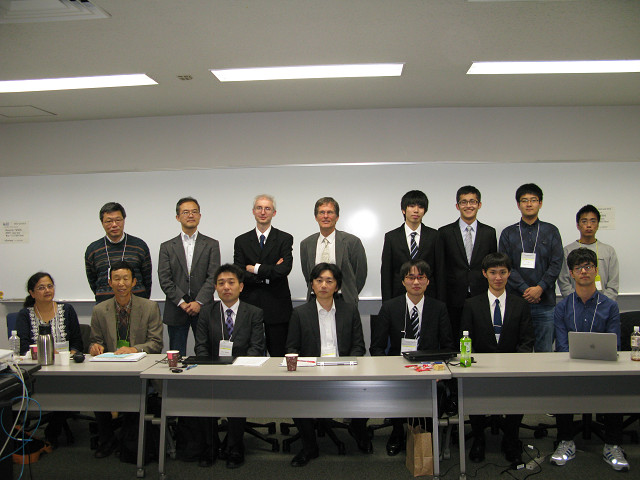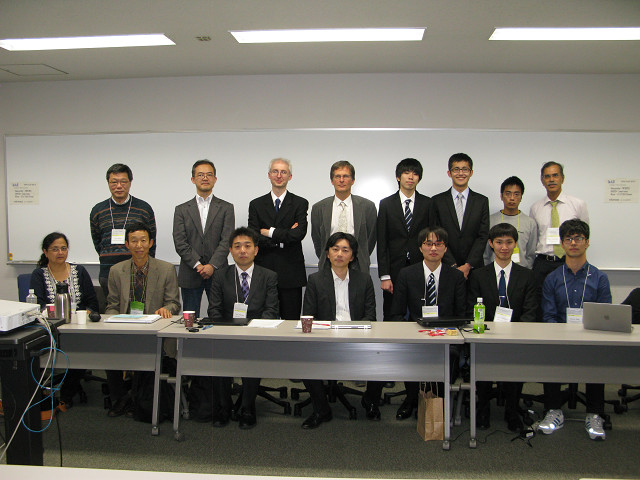TSDAA 2015
Workshop on Time Series Data Analysis and its Applications
November 17, 2015,
Keio University, Yokohama, Kanagawa
Yagami Campus (beside Hiyoshi Campus)
http://www.keio.ac.jp/en/maps/yagami.html
Room no: Y-DR7, 2nd floor, 14th Building
Associated with JSAI International Symposia on AI (JSAI-isAI 2015)
https://www.ai-gakkai.or.jp/isai/
Note :
First of all the attendance is required to check-in and pick up your name tag at the registration desk in Hiyoshi Raiosha-building.Raiosha at Hiyoshi : http://www.keio.ac.jp/en/maps/hiyoshi.html No.9 building.
The final program was uploaded on Nov. 13, 2015.
tsdaa_program_20151113.pdf
http://www.keio.ac.jp/en/maps/yagami.html
But, first of all the attendance is required to check-in and pick up your name tag at the registration desk in Hiyoshi Raiosha-building.
Raiosha at Hiyoshi : http://www.keio.ac.jp/en/maps/hiyoshi.html No.9 building.
Keynote speeches include 35 mins' presentation and 10 mins' Q&A. Paper presentations include 15 mins' presentation and 5 mins' Q&A.
We will provide a projector. Could you bring your note PC to the venue for presentation, please?
We are going to have a social gathering and dinner party after the workshop.
18:00--20:00 Social gathering and dinner
Venue: Japanese Izakaya Kingyo
http://tabelog.com/kanagawa/A1401/A140204/14051909/
The objective of this workshop is to bring together researchers, students and scientists from various research areas and to provide them an interdisciplinary and multidisciplinary forum for discussion of different approaches and techniques of time series data analysis and their implementation in various real life applications. Time series data is abundant in nature and their analysis is needed in various fields like medical and health related applications, biometrics or process industry, finance or economic data analysis or weather prediction.
Linear or nonlinear time series analysis has a long history in Statistical and Mathematical Science. It is relatively new in the area of data mining or web mining in which time series text data is involved. An unifying approach to bridge the gap between traditional multivariate time series data analysis with state-of-the-art methodologies of data mining and knowledge extraction from real life time series data (numerical and text) from various sensors will be aimed in the workshop in order to deal with today's Big data.
- Time series Analysis and Forecasting: Statistical Methods and Multivariate Analysis
- Time series Analysis with Computational Intelligence
- Time series Classification and Clustering
- Early Classification on Multivariate time series
- Time series Dimensionality Reduction Techniques
- Similarity Measures for time series
- Time series Anomaly Detection
- Applications in energy, finance, medical, health, environment, network, social data, transportation, weather etc.
Prospective authors are invited to submit an extended abstract (up to 4 pages including figures and references). Manuscript should be unpublished work, must include enough detail about the goal, the problem to solve, proposed methods and main results. Papers should be written in English, formatted according to the Springer Verlag LNCS style in a pdf form, which can be obtained from Springer Online. If you use a word file, please follow the instruction of the format, and then convert it into a pdf form.
Submit your paper at https://easychair.org/conferences/?conf=tsdaa2015.
The selected papers of the workshops may be published as a post proceeding of Springer LNAI, as we are under negotiation with Springer Verlag for publication of Post Proceedings.
A post-workshop proceedings will be published as Springer Verlag LNAI. This time the paper will go through a rigorous review process. You are therefore encouraged to submit, if possible an upgraded version of your work, to be considered for publication in LNAI. The page limit is 16. Publication schedule is as follows:
- revised paper due: December 31, 2015
- notification of acceptance: February 8, 2016
- camera-ready due: March 1, 2016
Submit your paper at https://easychair.org/conferences/?conf=tsdaa2015.
- Submission Deadline:
August 31, 2015September 7, 2015 (final) - Author Notification: September 30, 2015
- Camera-ready: October 15, 2015
- Workshop Date: November 17, 2015
Please refer to JSAI-iSAI2015 page
https://www.ai-gakkai.or.jp/isai/registration
Registration & information desk
The on site registration and information desk will be located on the 1st floor in Hiyoshi Raiosha-building.Registration Desk Open Hours : 8:30 a.m. -- 17:30 p.m.
Note : The attendance at the workshop not only in Raihosha-building, but in Sosokan-building is required to check-in and pick up your name tag at the registration desk.
Cedric Bornand, HES-SO / HEIG-VD / MiS institute, Switzerland
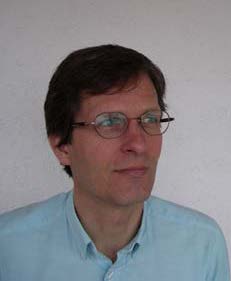
Simultaneous Acquisition Of Heterogenous Information Sources To Be Processed As Time Series
Abstract: Before processing time series, it is of great importance to acquire the signal correctly. In this paper, through examples, we will show some difficulties and their solutions, ranging from simple situations with one signal, such as heartbeat monitoring signals, to more complex ones with several heterogeneous signals, such as hyperspectral images or environmental measurements. All imply careful time acquisition as well as precise value estimations. For each situation that will be presented, we will identify the difficulties and find how to overcome them or, at least, diminish their impact. In any case, having a maximum of information in the signal must be a goal and will be crucial to obtain a good discrimination between signal and noise.
Short CV: Cedric Bornand is professor at the University of Applied Sciences, Western Switzerland (HES-SO). He teaches metrology, signal processors and man-machine interaction. Over the last twenty years his team has carried out research in various aspects of sensors applications, ranging from mechanical measurements to traffic measurements, solving algorithmic developments as well as hardware fittings. Cedric Bornand studied at the Swiss Federal Institute of technology in Lausanne (EPFL) and served as a development engineer for several companies as well as for academics, such as the neuroscience laboratory, Australian National University. Cedric Bornand is co-founder of several start-up companies. Maciej Huk, Wroclaw University of Technology, Poland
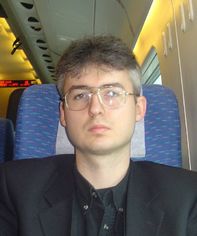
Time series modeling and prediction disbelief management
Abstract: Time series data is everywhere: it comes from IoT, sensor data, financial transactions and scientific observations. Time series analysis provides powerful tools and methodologies for modeling all kinds of related processes and predictions based on such models often are of great value for many applications in business, medicine and science. But even the most accurate prediction will be useless if potential users will not want to use it. I will discuss the not rare problem of prediction disbelief and methods of its management resulting from 15 years of experience with business and sientific time series modeling. The subject will be presented with references to the methods of genetic programming, contextual neural networks and competing ensembles of classifiers. The background story connecting all mentioned elements will be the case of SOHO SOI/MDI time series modeling for prediction of the Sun activity, important for many areas of the industry, business and people life.
Short CV: Maciej Huk received his MSc (Hons) and PhD (Hons) in Computer Science from Wroclaw University Of Technology, Poland in 2002 and 2007 respectively. Maciej is Assistant Professor at the Wroclaw University of Technlogy and the coordinator and leader of the "Selective attention systems in data analysis" group of the Polish Lower Silesia Knowledge and Innovation Cluster. In the same time he works as data scientist for the Gigaset Communications, part of the Gigaset, Goldin Group. He worked also in cooperation with the Astronomical Institute of Wroclaw University and the Stanford University SOHO SOI/MDI Group. Professor Huk is a member of the British Computer Society Information Retrieval Specialist Group and IEEE Computer Society Technical Committees on Pattern Analysis, Machine Intelligence and Intelligent Informatics. He worked also as a part of the ETSI Technical Committee on New Generation DECT, CAT-IQ standard. He is the reviewer of renowned international journals (e.g. PLoS One, International Journal of Applied Mathematics and Computer Science) and has served as the chair, program and/or organization commitee member of international conferences such as ISDA 2005, IMCSIT/ AAIA'07, CybConf 2015, PPAM 2015, FGCT 2015 and IEEE Healthcom 2015. Maciej Huk have been awarded several competitive grants from the Polish Ministry of Science and Higher Education, Wroclaw Centre of Technology Transfer and Wroclaw University of Technology. Keun Ho Ryu, Chungbuk National University, Korea
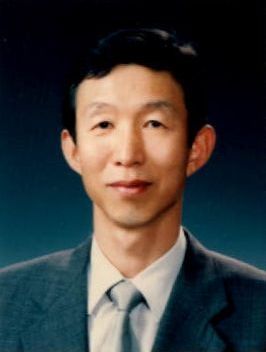
Geosemantics knowledge mining model framework in social network media
Abstract: In this talk, we will address not only a knowledge mining framework, modelling, and their applications in social media streams, but also current issues and ongoing work for related work. First we will introduce a spatial and a temporal concepts, a spatiotemporal concept, social media stream, and geosemantics as well as their services. Second we will explain knowledge extraction of geosemantics and issues of knowledge extraction in geospatial domain as well as ontology in social media stream. Some issues, which are social media stream collection and preprocessing, association rule in social media stream, applications of knowledge to be extracted, are also discussed. Third we propose a framework of geosemantics knowledge mining for social network media: collecting social media data, extracting concepts, finding rules according to the transaction, and monitoring the issues and changing of the issue. We will also take care of an indexing technique for geospatial problems. Finally we discuss current issues and ongoing researches.Short CV: Keun Ho Ryu is a professor at Chungbuk National University and a leader of database and bioinformatics laboratory in Republic of Korea since 1986. He is also a vice president of Personalized Tumor Engineering Research Center. He received the Ph.D. in Computer Science/Engineering from Yonsei University in 1988 in Republic of Korea. He was a captain in Korean Army for four year as ROTC. He also worked not only at University of Arizona as Post-doc and research scientist in U.S.A but also at Electronics& Telecommunications Research Institute in Republic of Korea as senior researcher. He has served on numerous program committees including a demonstration co-chair of the VLDB, a panel and tutorial co-chair of the APWeb, a general co-chair of the FITAT/ISPM. He has published over 1000 referred technical articles in various journals, international conferences, and books. His research interests are included in temporal databases, spatiotemporal database, temporal GIS, ubiquitous computing and stream data processing, knowledgebase information retrieval, database security, data mining, bioinformatics and biomedical. He is a member of the IEEE as well as a member of the ACM since 1983. Please refer the website http://dblab.chungbuk.ac.kr for more detail projects, laboratory members, and so on. Please refer the following website for publications. 1) See "DBLP: Keun Ho Ryu" from search on the GOOGLE site 2) See "Keun Ho Ryu" from Search on ACM PORTAL 3) See "Keun Ho Ryu" from Search on PubMed home
Raiosha Building, Keio University, Kanagawa, Japan.
Room no: Y-DR7, 2nd floor, 14th Building, Yagami Campus (beside Hiyoshi Campus)
http://www.keio.ac.jp/en/maps/yagami.html
- Basabi Chakraborty
Iwate Prefectural University, Japan
Email: basabi [at] iwate-pu.ac.jp - Goutam Chakraborty
Iwate Prefectural University, Japan
Email: goutam [at] iwate-pu.ac.jp - Tetsuji Kuboyama
Gakushuin University, Japan
Email: ori-isAI2015 [at] tk.cc.gakushuin.ac.jp - Masafumi Matsuhara
Iwate Prefectural University, Japan
Email: masafumi [at] iwate-pu.ac.jp
- Cedric Bornand, HES-SO / HEIG-VD / MiS institute, Switzerland
- Smarajit Bose, Indian Statistical Institute, India
- Basabi Chakraborty, Iwate Prefectural University, Japan
- Goutam Chakraborty, Iwate Prefectural University, Japan
- Bhabatosh Chanda, Indian Statistical Institute, India
- Rung Ching Chen, Chaoyang University of Technology, Taiwan
- Takako Hashimoto, Chiba University of Commerce, Japan
- Tzung-Pei Hong, National University of Kaohsiung, Taiwan
- Cheng-Hsiung Hsieh, Chaoyang University of Technology, Taiwan
- Yo-Ping Huang, National Taipei University of Technology, Taiwan
- Maciej Huk, Wroclaw University of Technology, Poland
- Tetsuji Kuboyama, Gakushuin University, Japan
- Hsien-Chou Liao, Chaoyang University of Technology, Taiwan
- Yusuke Manabe, Chiba Institute of Technology, Japan
- Masafumi Matsuhara, Iwate Prefectural University, Japan
- Subhas Mukhopadhyay, Massey University, New Zealand
- C. A. Murthy, Indian Statistical Institute, India
- Amita Pal, Indian Statistical Institute, India
- Jagdish Patra, Swinburne University of Technology, Australia
- Vinod A Prasad, Nanyang Technological University, Singapore
- David Ramamonjisoa, Iwate Prefectural University, Japan
- Keun Ho Ryu, Chungbuk National University, Korea
- Kilho Shin, University of Hyogo, Japan
- Yukari Shirota, Gakushuin University, Japan
- Hideyuki Takahashi, Tohoku University, Japan
- Leon S.L. Wang, National University of Kaohsiung, Taiwan
- Qiangfu Zhao, University of Aizu, Japan
Email: tsdaa2015 [at] chishiki.soft.iwate-pu.ac.jp
